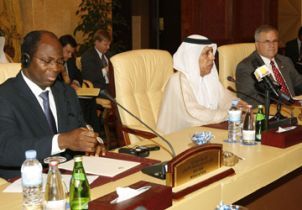Rebels say Darfur talks’ success depends on government
June 4, 2009 (PARIS) — The Justice and Equality Movement repeated today its rejection to negotiate any new deal with the Sudanese government as long as Khartoum does not implement an agreement providing to improve humanitarian conditions in Darfur and the exchange of prisoners.

“The decision is in the hands of the government, if they allow the return of the expelled aid groups and release the prisoners of war as it was agreed in the goodwill agreement of last February then we would engage negotiations on the other issues” JEM spokesperson Ahmed Hussein Adam told Sudan Tribune from Doha.
The rebel official stressed that the government focuses on the issue of the exchange of POWs and alleges that JEM wants only to release its fighters. He further said Khartoum aims to draw the attention from the main issue of “the disastrous humanitarian situation on the ground.”
“We receive reports from the camps telling the situation is getting bad day-after-day and this is why we requested the presence in Doha of the UN undersecretary general for the humanitarian affairs John Holmes besides any official from the World Food Programme to brief the talks about the situation there.”
He further disclosed that two high ranking officials from New York and Darfur are expected to brief the meeting on the humanitarian situation, on the request of the mediation.
Sudanese government claims covering the humanitarian gaps raised by the forced departure of the international NGOs, but the UN does not share this point of view.
Last April UN Secretary General warned that “While joint efforts by the UN and Sudan ‘can address some of the most critical gaps in aid delivery in the coming weeks,’ ….’the cumulative effects over time of the removal of such a large amount of humanitarian capacity puts well over 1 million people at life-threatening risk.’ The rainy season starting in May is likely to make the situation significantly worse,’ Ban added.”
Ahmed said the mediation should have some leverage on the Sudanese government and convince it to implement the confidence building agreement of last February.
He said they gave on Thursday to the mediation their remarks on a road-map submitted by the mediation to the two parties on the whole process.
UN experts estimate some 300,000 people have died and 2.7 million driven from their homes. Sudan blames the Western media for exaggerating the conflict and puts the death toll at 10,000.
Mutrif Siddiq yesterday blamed saying “external interventions made it a crisis of international security.”
Siddiq who made these statements in the Jordanian capital, showed pessimism stressing that despite the efforts exerted by the mediation there no solution to Darfur crisis.
(ST)
